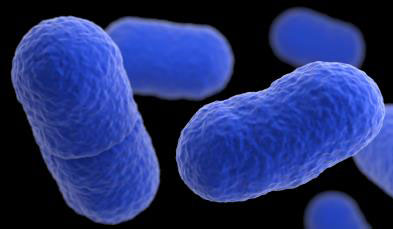State and federal agencies team to fight Listeria

Steven Mandernach, IDIA Food and Consumer Safety Bureau Chief and this year’s SHL Public Health Ambassador, is spearheading this Iowa Rapid Response project in collaboration with Nancy Hall, SHL Environmental Microbiology manager, with funding from FDA.
Unlike other bacteria, Listeria organisms can grow at refrigeration temperatures, and are capable of forming protective biofilms on surfaces. Biofilms – a combination of an organism’s cells and the extracellular polymeric substance matrix which they can create – are difficult to remove with cleaners or kill with sanitizers. Listeria, in particular, thrives in areas that are frequently wet, such as the floor drains, mats and cutting boards found in food service work areas.
The species Listeria monocytogenes poses a health risk, especially in ready-to-eat foods. There have been several large national Listeria monocytogenes outbreaks in the past few years involving cantaloupes, bean sprouts and dairy products, including soft cheese, ice cream and raw milk.
A pilot assessment project of a new in-the-field Listeria test kit began in November 2016; the second phase of the project started in mid-January. IDIA inspectors sampled and incubated the test swabs in the field and sent positive swabs to SHL for confirmation. The Hygienic Lab microbiologists who evaluated the new test swabs, however, found that the swabs did not perform as expected, and instead had low sensitivity and specificity.
Because of these problems, IDIA decided to abandon this field test kit and continue regular environmental sampling in the fall of 2017, sending sponge samples directly to SHL for standard USDA culture testing methodologies.
The new eight-week IDIA Listeria project began in September 2017. Approximately 60 samples were sent to SHL each week.
Three IDIA inspectors collected surface sponge samples at retail food establishments throughout Iowa. Samples were delivered in coolers to SHL’s Ankeny and Coralville labs by the inspectors and – from the Council Bluffs area – by the SHL courier service.
Collectors used a new type of sample sponge-on-a-stick infused with a collection broth intended to neutralize disinfectants on food contact surfaces, preventing false negative test results.
SHL testing involved enrichment of the samples and then real-time polymerase chain reaction testing to detect Listeria species. All presumptive positive detections were confirmed by culture and identification using state of the art MALDI-TOF mass spectrometry. Any positive Listeria monocytogenes isolates were further characterized by whole gene sequencing and submitted to the FDA GenomeTrakr program.



